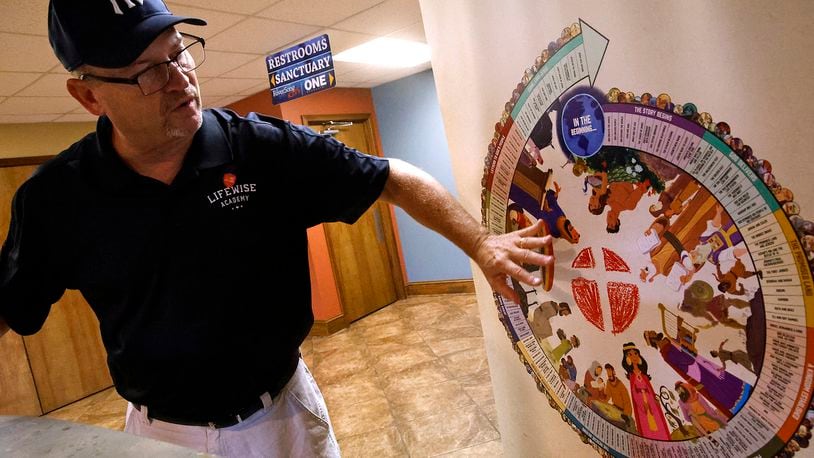“I think it’s important that we actually do address this and say listen, folks, these are people’s rights,” Click said.
Teaching religious classes to public school students during the school day is legal under a pair of Supreme Court decisions in 1948 and 1952, but there are many restrictions on it under federal law.
Some of the federal rules include that religious instruction cannot be provided by teachers or school staff, the school grounds cannot be used, and no school funds can be spent.
States can regulate further. In Ohio, parents must give written permission, the organization providing religious instruction has to keep attendance, kids can’t miss core classes to attend, and the schools cannot be held liable for anything that happens in the transporting of the students. (The schools can’t legally transport the students because that would involve school money.)
Ryan Jayne, a senior policy counsel for the Freedom From Religion Action Fund, said other states like Wisconsin and Indiana have similar laws to what is being proposed.
But FFRA is opposing these types of laws because it puts additional pressure on students, he said.
“You’re going to be facing pressure because your peers are telling you hey, you should be coming to LifeWise,” Jayne said. “We really feel like there’s plenty of time in the week outside of school hours where parents can provide their children with religious education and there’s no need to be carving that out of the school day, especially when it has these inherently divisive properties.”
Click said in his region in northwest Ohio, people tried to rescind an active policy allowing released time after the religious organization LifeWise, which promotes and runs programs for released time for religious instruction, made a proposal to go into a local school district.
Click said he wanted to make sure there was a policy allowing students to take advantage of the opportunity if they wanted it.
Ohio State Rep. Beryl Piccolantonio, D-Gahanna, pushed back on Click’s testimony Tuesday, saying her understanding was the Constitution allowed local schools to adopt policies around released time for religious instruction if they wanted to.
“It is my belief when the law passed in 2014 that it was written with the word ‘may’ and not the word ‘shall’ because the court said that it is permissible for release time to be granted, not that it is mandatory,” Piccolantonio said.
Cutrona said the bill would not mandate what the school’s policy would be.
“More and more parents in Ohio would like their children to participate in religious release time programs,” said Cutrona. “By being proactive in considering how release time programs work before groups of parents ask for an option, school districts will be in the best position to tailor a program that works within the academic framework of the district.”
A Dayton Daily News investigation into LifeWise, which has hundreds of chapters across Ohio and has spread rapidly in the last five years, found that most of the schools who have been approached by LifeWise worked with the organization. But a handful of schools have decided not to work with them.
LifeWise primarily works with elementary school students. The students attend the religious classes off-campus either on rotation of “special” classes, like gym and music, during library time or during lunch.
About the Author
